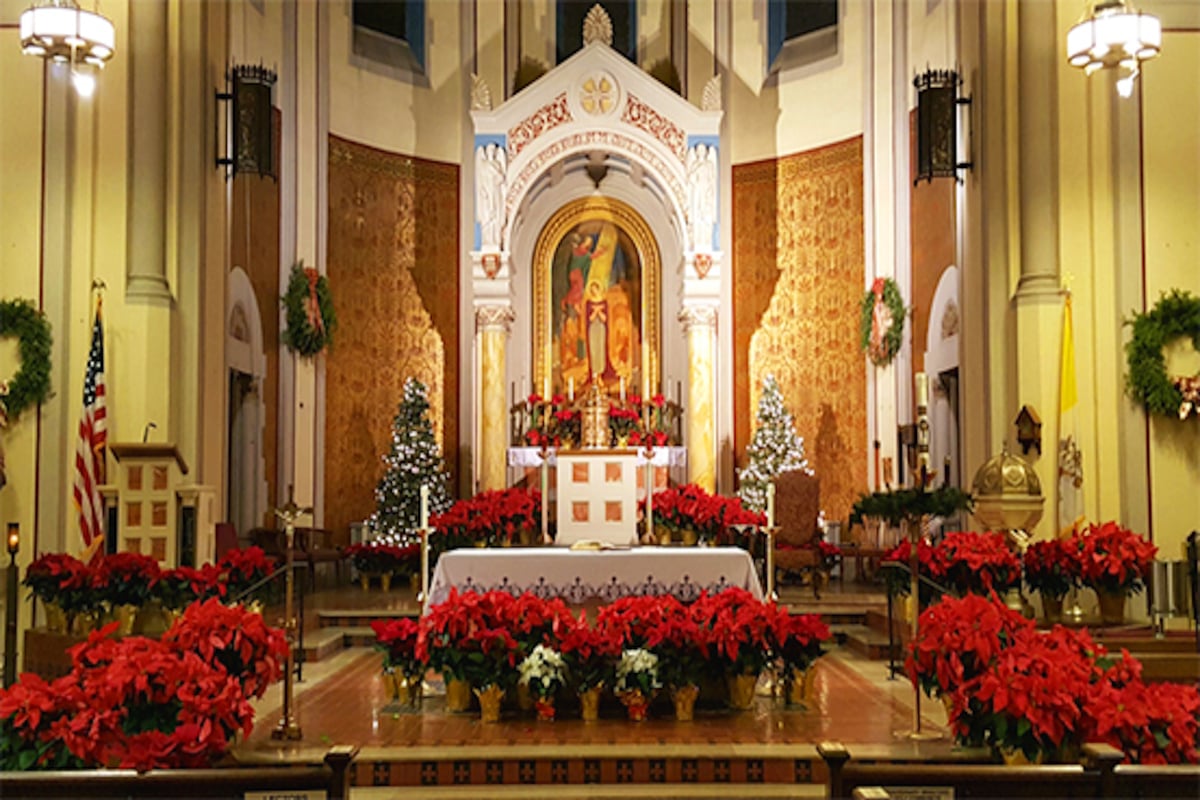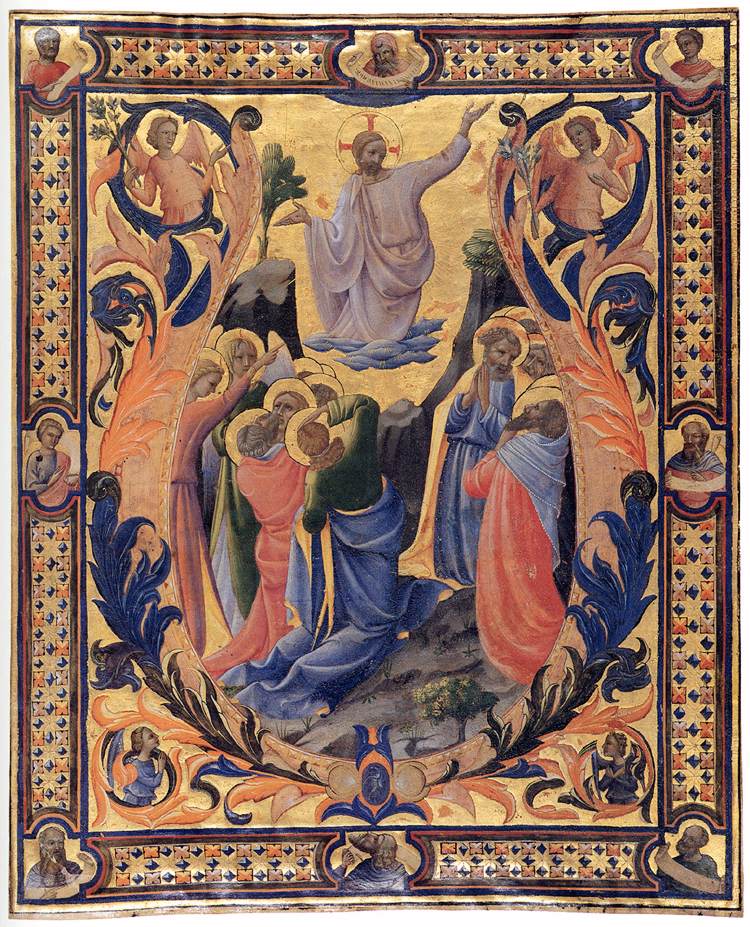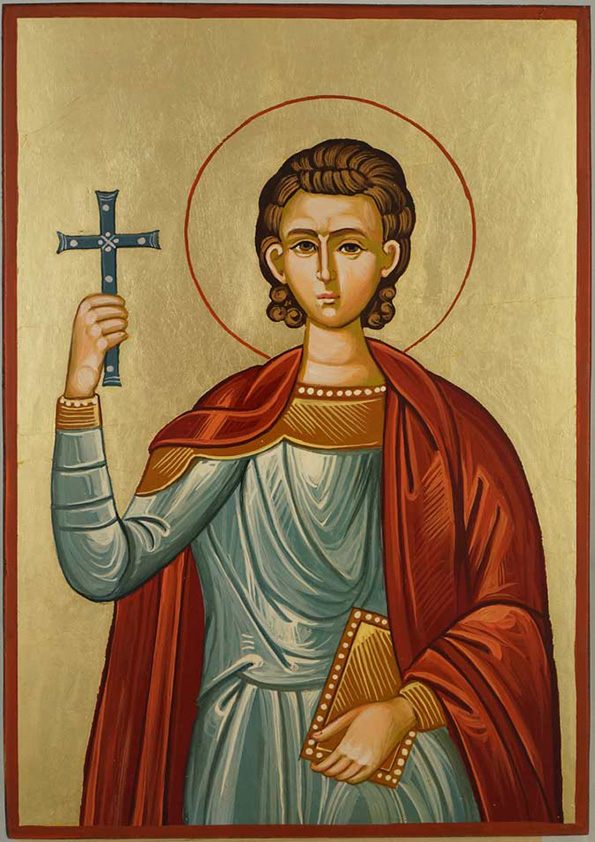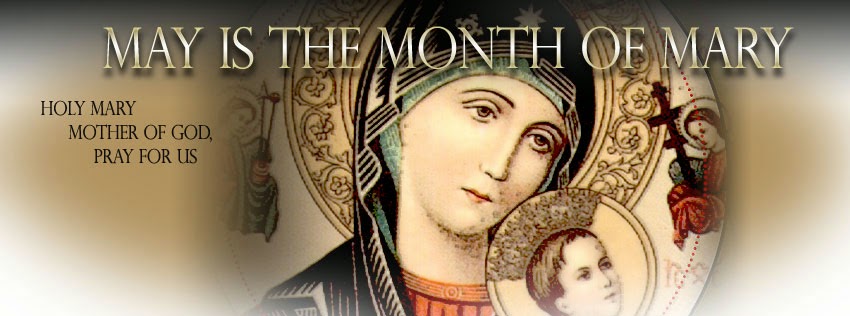
Catena Aurea by St. Thomas Aguinas
16:14–18
14. Afterward he appeared unto the eleven as they sat at meat, and upbraided them with their unbelief and hardness of heart, because they believed not them which had seen him after he was risen.
15. And he said unto them, Go ye into all the world, and preach the Gospel to every creature.
16. He that believeth and is baptized shall be saved; but he that believed not shall be damned.
17. And these signs shall follow them that believe; In my name shall they cast out devils; they shall speak with new tongues;
18. They shall take up serpents; and if they drink any deadly thing, it shall not hurt them; they shall lay hands on the sick, and they shall recover.
GLOSS. (non occ.) Mark, when about to finish his Gospel, relates the last appearance of our Lord to His disciples after His resurrection, saying,1 For the last time he appeared unto the eleven as they sat at meat. (Acts 1:4, 9)
GREGORY. (ubi sup.) We should observe that Luke says in the Acts, As he2 was eating with them he commanded that they should not depart from Jerusalem, and shortly afterwards, while they beheld he was taken up. For He ate, and then ascended, that by the act of eating, the truth of the flesh might be declared; wherefore it is also here said, that he appeared to them for the last time as they sat at meat.
PSEUDO-JEROME. But He appeared when all the eleven were together, that all might be witnesses, and relate to all men what they had seen and heard in common. It goes on: And upbraided them with their unbelief and hardness of heart, because they believed not them who had seen him after his resurrection.
AUGUSTINE. (ubi sup.) But how was this done the last time? The last occasion on which the Apostles saw the Lord upon earth happened forty days after the resurrection; but would He then have upbraided them for not believing those who had seen Him risen, when they themselves had so often seen Him after His resurrection? It remains therefore that we should understand that Mark wished to say it in few words, and said for the last time, because it was the last time that He shewed Himself that day, as night was coming on, when the disciples returned from the country into Jerusalem, and found, as Luke says (Luke 24:33.), the eleven and those who were with them, speaking together concerning the resurrection of our Lord. But there were some there who did not believe; when these then were sitting at meat, (as Mark says,) and were still speaking, (as Luke relates,) The Lord stood in the midst of them, and saith unto them, Peace be unto you; (Luke 24:36) as Luke and John say. (John 20:19) The rebuke therefore which Mark here mentions, must have been amongst those words, which Luke and John say, that the Lord at that time spoke to the disciples. But another question is raised, how Mark says that He appeared when the eleven sat at meat, if the time was the first part of the night on the Lord’s day, when John plainly says that Thomas was not with them, who, we believe, had gone out, before the Lord came in to them, after those two had returned from the village, and spoken with the eleven, as we find in Luke’s Gospel. But Luke in his relation leaves room for supposing that Thomas went out first, while they spoke these things, and that the Lord entered afterwards; Mark however from his saying, for the last time he appeared to the eleven as they sat at meat, forces us to believe that he was there, unless indeed, though one of them was absent, he chose to call them the eleven, because the company of the Apostles was then called by this number, before Matthias was chosen into the place of Judas. Or if this be a harsh way of understanding it, let us understand that it means that after many appearances, He shewed Himself for the last time, that is, on the fortieth day, to the Apostles, as they sat at meat, and that since He was about to ascend from them, He rather wished on that day to reprove them for not having believed those who had seen Him risen before seeing Him themselves, because after His ascension even the Gentiles on their preaching were to believe a Gospel, which they had not seen. And so the same Mark immediately after that rebuke says, And he said unto them, Go ye into all the world, and preach the Gospel to every creature. And lower down, He that believeth not shall be condemned. Since then they were to preach this, were not they themselves to be first rebuked, because before they saw the Lord they had not believed those to whom He had first appeared?
GREGORY. (ubi sup.) Another reason also why our Lord rebuked His disciples, when He left them as to His bodily presence, was, that the words which He spoke on leaving them might remain more deeply impressed upon the hearts of His hearers.
PSEUDO-JEROME. But He rebukes their want of faith, that faith might take its place; He rebukes the hardness of their stony heart, that the fleshy heart, full of love, might take its place.
GREGORY. (ubi sup.) After rebuking the hardness of their hearts, let us hear the words of advice which He speaks. For it goes on: Go ye into all the world, and preach the Gospel to every creature. Every man must be understood by every creature; for man partakes something of every creature; he has existence as have stones, life as trees, feeling as animals, understanding as have Angels. For the Gospel is preached to every creature, because he is taught by it, for whose sake all are created, whom all things are in some way like, and from whom therefore they are not alien. By the name of every creature also every nation of the Gentiles may be meant. For it had been said before, Go not into the way of the Gentiles. (Matt. 10:5) But now it is said, Preach the Gospel to every creature, so that the preaching of the Apostles which was thrust aside by Judæa, might be an assistance to us, since Judæa had haughtily rejected it, thus witnessing to her own damnation.
THEOPHYLACT. Or else; to every creature, that is, whether believing or unbelieving. It goes on: He that believeth and is baptized shall be saved. For it is not enough to believe, for he who believeth and is not baptized, but is a catechumen, has not yet attained to perfect salvation.
GREGORY. (ubi sup.) But perhaps some one may say in himself, I have already believed, I shall be saved. He says what is true, if he keeps his faith by works; for that is a true faith, which does not contradict by its deeds what it says in words. There follows: But he that believeth not shall be damned.
BEDE. (ubi sup.) What shall we say here about infants, who by reason of their age cannot yet believe; for as to older persons there is no question. In the Church then of our Saviour children believe by others, as also they drew from others the sins which are remitted to them in baptism. It goes on: And these signs shall follow them that believe; In my name shall they cast out devils; they shall speak with new tongues; they shall take up serpents.
THEOPHYLACT. That is, they shall scatter before them serpents, whether intellectual or sensible, as it is said, Ye shall tread upon serpents and scorpions, which is understood spiritually. But it may also mean sensible serpents, as when Paul received no hurt from the viper. There follows: And if they drink any deadly thing, it shall not hurt them. (Luke 10:19) We read of many such cases in history, for many persons have drank poison unhurt, by guarding themselves with the sign of Christ. It goes on: They shall lay hands on the sick, and they shall recorer.
GREGORY. (ubi sup.) Are we then without faith because we cannot do these signs? Nay, but these things were necessary in the beginning of the Church, for the faith of believers was to be nourished by miracles, that it might increase. Thus we also, when we plant groves, pour water upon them, until we see that they have grown strong in the earth; but when once they have firmly fixed their roots, we leave off irrigating them. These signs and miracles have other things which we ought to consider more minutely. For Holy Church does every day in spirit what then the Apostles did in body; for when her Priests by the grace of exorcism lay their hands on believers, and forbid the evil spirits to dwell in their minds, what do they, but cast out devils? And the faithful who have left earthly words, and whose tongues sound forth the Holy Mysteries, speak a new language; they who by their good warnings take away evil from the hearts of others, take up serpents; and when they are hearing words of pestilent persuasion, without being at all drawn aside to evil doing, they drink a deadly thing, but it will never hurt them; whenever they see their neighbours growing weak in good works, and by their good example strengthen their life, they lay their hands on the sick, that they may recover. And all these miracles are greater in proportion as they are spiritual, and by them souls and not bodies are raised.
16:19–20
19. So then after the Lord had spoken unto them, he was received up into heaven, and sat on the right hand of God.
20. And they went forth, and preached every where, the Lord working with them, and confirming the word with signs following. Amen.
PSEUDO-JEROME. The Lord Jesus, who had descended from heaven to give liberty to our weak nature, Himself also ascended above the heavens; wherefore it is said, So then after the Lord had spoken unto them, he was received up into heaven.
AUGUSTINE. (ubi sup.) By which words He seems to shew clearly enough that the foregoing discourse was the last that He spake to them upon earth, though it does not appear to bind us down altogether to this opinion. For He does not say, After He had thus spoken unto them, wherefore it admits of being understood not as if that was the last discourse, but that the words which are here used, After the Lord had spoken unto them, he was received into heaven, might belong to all His other discourses. But since the arguments which we have used above make us rather suppose that this was the last time, therefore we ought to believe that after these words, together with those which are recorded in the Acts of the Apostles, our Lord ascended into heaven.
GREGORY. (ubi sup.) We have seen in the Old Testament that Elias was taken up into heaven. But the ethereal heaven is one thing, the aerial is another. The aerial heaven is nearer the earth, Elias then was raised into the aerial heaven, that he might be carried off suddenly into some secret region of the earth, there to live in great calmness of body and spirit, until he return at the end of the world, and pay the debt of death. We may also observe that Elias mounted up in a chariot, that by this they might understand that a mere man requires help from without. But our Redeemer, as we read, was not carried up by a chariot, not by angels, because He who had made all things was borne over all by His own power. We must also consider what Mark subjoins, And sat at the right hand of God, since Stephen says, I see the heavens opened, and the Son of Man standing at the right hand of God. Now sitting is the attitude of a judge, standing of one fighting or helping. Therefore Stephen, when toiling in the contest, saw Him standing, whom he had for his helper; but Mark describes Him as sitting after His assumption into heaven, because after the glory of His assumption, He will in the end be seen as a judge.
AUGUSTINE. (de Symbolo, 4) Let us not therefore understand this sitting as though He were placed there in human limbs, as if the Father sat on the left, the Son on the right, but by the right hand itself we understand the power which He as man received from God, that He should come to judge, who first had come to be judged. For by sitting we express habitation, as we say of a person, he sat himself down in that country for many years; in this way then believe that Christ dwells at the right hand of God the Father. For He is blessed and dwells in blessedness, which is called the right hand of the Father; for all is right hand there, since there is no misery. It goes on: And they went forth and preached every where, the Lord working with than, and confirming the word with signs and wonders.
BEDE. (ubi sup.) Observe that in proportion as Mark began his history later, so he makes it reach in writing to more distant times, for he began from the commencement of the preaching of the Gospel by John, and he reaches in his narrative those times in which the Apostles sowed the same word of the Gospel throughout the world.
GREGORY. (ubi sup.) But what should we consider in these words, if it be not that obedience follows the precept and signs follow the obedience? For the Lord had commanded them, Go into all the world preaching the Gospel, and, Ye shall be witnesses even unto the ends of the earth.
AUGUSTINE. (Epist. cxcix. 12.) (Acts 1:8) But how was this preaching fulfilled by the Apostles, since there are many nations in which it has just begun, and others in which it has not yet begun to be fulfilled? Truly then this precept was not so laid upon the Apostles by our Lord, as though they alone to whom He then spoke were to fulfil so great a charge; in the same way as He says, Behold, I am with you always, even unto the end of the world, apparently to them alone; but who does not understand that the promise is made to the Catholic Church, which though some are dying, others are born, shall be here unto the end of the world?
THEOPHYLACT. But we must also know from this that words are confirmed by deeds as then in the Apostles works confirmed their words, for signs followed. Grant then, O Christ, that the good words which we speak may be confirmed by works and deeds, so that at the last, Thou working with us in word and in deed, we may be perfect, for Thine as is fitting is the glory both of word and deed. Amen.
Catena Aurea Mark 16
Who is St Pancras?
Pancras was born in about the year 290 in Phrygia, a region of Asia. He was the only son of Cleonius, a wealthy Roman nobleman, and his wife. She was also of noble birth but her name is not known to history. Pancras spent the first ten years of his life in and around Phrygia. When he was nine years old his mother died. Cleonius, her husband, laid her body to rest beside the gently flowing water of a brook which ran through the grounds of the family estate. Every day for three months the grief stricken Cleonius and the motherless Pancras made their way together to the grave. Every day they wept over it and cast fresh flowers upon it.
After three months of relentless sorrowing Cleonius felt himself beginning to fade under the weight of his grief. He took to his bed. Sure enough, it was soon pronounced by his doctors to be his death bed. Cleonius sent for his brother, Dionysius, and committed to his care the ten year old Pancras. “I pray you take charge of the boy”, Cleonius said. “Bring him up as your own son. Dionysius agreed and promised to care for Pancras. Cleonius breathed his last. He had died of a broken heart. His body was laid to rest next to his wife’s, beside the gently flowing water of the brook.
Dionysius decided that the best way to keep his promise about his orphan nephew was to take him to live in Rome. At that time Rome was the capital city of the greatest empire the world had ever known. There Pancras would have the opportunity for a fine education. When he grew to manhood he would have a wide choice of careers, maybe in the Roman army in the service of the empire. So off to Rome from Phrygia went uncle and nephew. They sailed across the Mediterranean Sea and arrived at last in Rome, the Imperial City. It was about the year 300. The Emperor Diocletian was ruling the Roman Empire.
Under his direction Christians were being mercilessly persecuted. Many followers of Jesus of Nazareth had already given their lives for refusing to renounce their faith. The Emperor Diocletian was enraged that the more he persecuted the Christians the more they persisted. At that time one of the leaders among the Christians in Rome was a man called Marcellinus. He was a good and kind man, devoted with all his heart to his faith in Jesus. He was in the habit of going stealthily from house to house under cover of darkness in order to persuade as many people as he could that Jesus of Nazareth had died to save the world.
The activities of Marcellinus and the success of his work came to the notice of Galerius. He was one of the chief ministers of the Emperor. He was even more cruelly opposed to Christians than his imperial master. Galerius persuaded the Emperor Diocletian to destroy all the members of the rebellious religious sect who persisted in their faith in Jesus. Galerius proposed the final solution. Diocletian agreed. Together they planned the extermination of the obstinate sect. The Great Persecution began. It was the year 304.
With fierce determination, followers of Jesus of Nazareth were pursued and put to death in excruciating ways. Among the methods of extermination used were stoning, flogging and being fed to wild animals. Martyrs for the Christian faith were created by the score. Good and kind Marcellinus daily expected to receive his own call to martyrdom. In the meantime, he continued his activities. He encouraged the faithful who feared for their lives. He taught Jesus to the people with fervent enthusiasm.
One night, Marcellinus arrived at the house where Pancras and his uncle Dionysius were staying. Marcellinus told them the Good News. They listened. They believed. Gradually uncle and nephew gave up going to worship in the Temple of Jupiter and turned their faith to Jesus. They would go at midnight to the secrecy of the catacombs. There they would join their Christian friends. With them they would worship God and join in the celebration of the Holy Mass. When dawn began to break upon the sky they would make their way home again.
Soon after the conversion of Pancras and his uncle Dionysius to the Christian faith. Dionysius died. Pancras was now on his own in the world. Kneeling beside the dead body of his uncle, Pancras prayed with all his soul for strength to persevere. Suddenly, without warning, four soldiers of the Roman army burst into the room. – They ordered Pancras to his feet. They frogmarched him to the Imperial Palace. They flung him into the presence of the Emperor. The Emperor Diocletian was seated on the splendour of the imperial throne. Galerius stood in attendance at his side. Around the throne were assembled the imperial court and the chief soldiers of the Roman army in -all their might and majesty. Pancras trembled before the Emperor. A boy of fourteen years old. Frightened. Alone. First the Emperor tried persuasion. Pancras resisted. Next the Emperor uttered threats. Pancras resisted. Finally the Emperor played his trump card. “Reject Jesus and worship Jupiter or I’ll have you thrown to the wild animals!” Pancras resisted. Firm in faith he replied to the Emperor, “I dare not deny my Saviour. I will not worship idols. God will give me the strength to die for him.”
The Emperor Diocletian was beside himself with fury. He ordered the boy to be taken at once to the Aurelian Way, there to be put to death by the sword. The soldiers of the guard instantly obeyed the imperial command. They marched Pancras away to martyrdom. It was sunset. Pancras knelt down. The soldiers tied his hands behind his back. They plunged their swords into his heart. His soul went to God. His body was left to rot. Christian friends came during the night. They carried the corpse of the boy away and laid it to rest in the secrecy of the catacombs. It was the year 304.
Eight years later, in the year 312, the Emperor Constantine, successor to Diocletian, was himself converted to the Christian faith. Constantine decreed that the faith could be professed throughout the Roman Empire without fear of persecution. Once the faith was officially permitted the bodies of many martyrs were brought out from the secrecy of the catacombs. Their remains were regarded as sacred. They were given Christian burial.
To accommodate the remains of Saint Pancras a church was built in Rome at the second milestone on the Aurelian Way on the site of his martyrdom. In Old St Pancras Church the statue of Saint Pancras shows him holding in his hand a model of Old St Pancras Church, which stands today on the site first dedicated to his name and in his honour in the year 314. Under his patronage Christian worship has been offered on the site ever since.
Emperors and their empires come and go. The Faith of Jesus endures evermore. We are upholders of an honourable heritage. We are followers in the footsteps of a meritorious martyr. God gave him the strength to die for the Faith. We pray that he will give us the strength to live for the Faith.
Compiled by Fr Patrick Phelan, Parish Priest of Old S.Pancras 1996-1998
May your Church rejoice, O God,
confident in the intercession of the Martyr Saint Pancras,
and by his glorious prayers
may she persevere in devotion to you
and stand ever firm.
Through our Lord Jesus Christ, your Son,
who lives and reigns with you in the unity of the Holy Spirit,
God, for ever and ever. Amen.
stpancrasoldchurch.posp.co.uk








